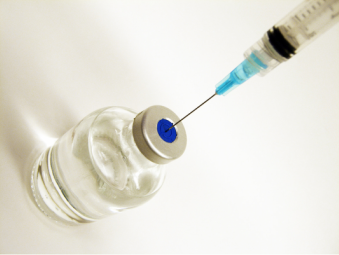Possible link between flu jab and Guillain-Barré syndrome under investigation
BMJ 2003; 326 doi: https://doi.org/10.1136/bmj.326.7390.620/b (Published 22 March 2003)Cite this as: BMJ 2003;326:620
US Institute of Medicine's immunisation safety review committee has been investigating whether the influenza vaccine might carry a risk of the demyelinating disorder Guillain-Barré syndrome.A sharp increase in cases of the disorder occurred in 1993–4 after immunisation. There were 74 cases in 1994, compared with only 37 cases in 1993 and 23 in 1991. Although the number of reports of vaccine associated cases of the syndrome has remained low in recent years—between 20 and 40—the sudden increase in 1994 raised concerns about vaccine safety.
In a fact finding session earlier this month, the committee heard reviews of studies since 1976, when the numbers of vaccine associated cases of the syndrome stopped the US immunisation campaign against “swine flu.” By then, 45 million people had been vaccinated. Ultimately, 581 cases of Guillain-Barré syndrome were reported that year, said the Centers for Disease Control and Prevention (CDC) in Atlanta, Georgia.
Initial studies suggested a causal relation between Guillain-Barré syndrome and the vaccine. Subsequently this was challenged on several grounds, including that the cases had been gathered by public health officers who had not been trained to diagnose the syndrome; reports were not based on medical records; some cases accepted by the CDC failed to meet the criteria for the syndrome; and the publicity over the possible link had biased the reporting of cases.
A later study, in 1991, reviewed all the cases of the syndrome in adults (whether vaccinated or unvaccinated) from two states. Using a standard definition of Guillain-Barré syndrome, it rejected 29% of them, said Dr Robert Chen of the CDC's immunisation safety branch.
A 1998 study, summarised for the committee, showed that if there was a risk of flu vaccine causing the syndrome, it was extremely small. Dr Tamar Lasky from the University of Maryland School of Medicine put it at between 1 and 2 cases per million vaccinated persons a year.
One possible cause is that flu vaccine contains Campylobacter, said Dr Chen. He said that the vaccine is made in chicken eggs and that 40-50% of chickens are infected with Campylobacter, which is difficult to eradicate.
However, the syndrome can occur after various clinical events, said neurologist Dr John Griffin from Johns Hopkins University School of Medicine, Baltimore. He cited surgery, pregnancy, childbirth, and “all sorts of non-specific infections.”
Probably 70% of cases of the syndrome follow something, he said. “But the robust associations are really restricted to Campylobacter and to herpes viruses, and they include HIV, where there is likely to be an altered immune state. It's worth keeping in mind that pharmacologic immunosuppression may also lead to Guillain-Barré syndrome.”
Dr Marie McCormick from Harvard School of Public Health and chairwoman of the committee said the findings would be published in two to three months.
View Abstract
